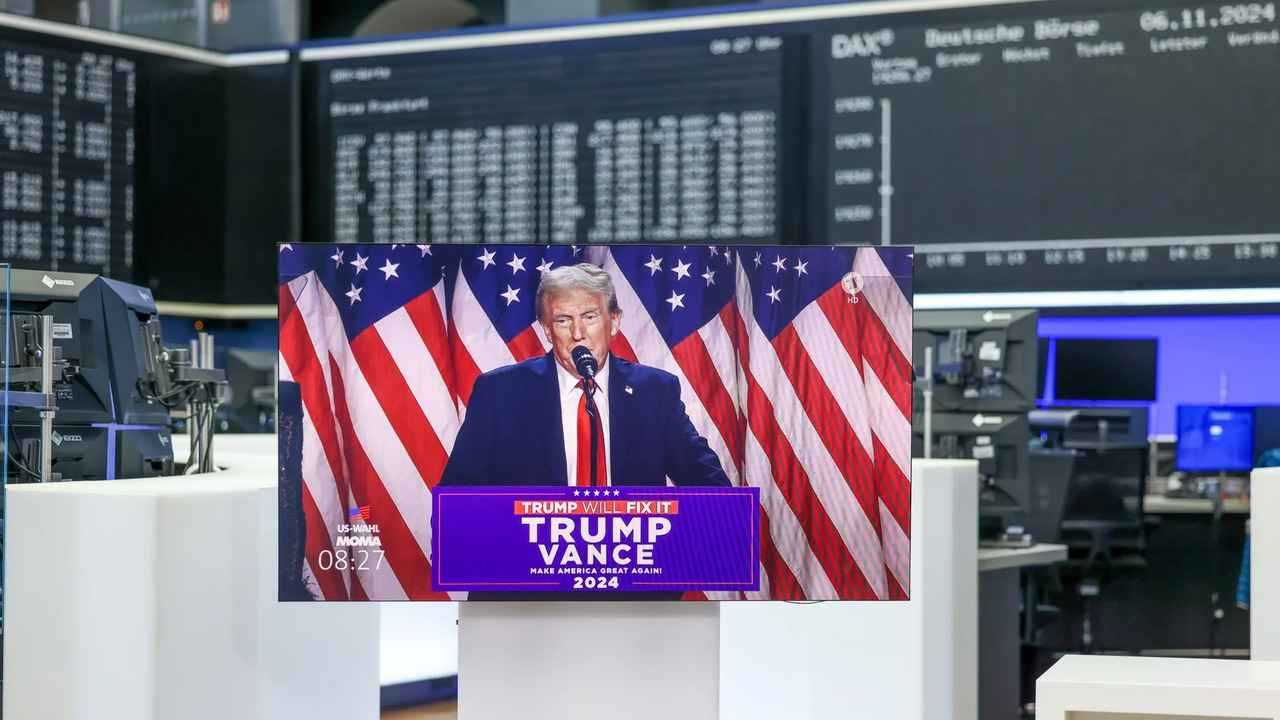What a Trump victory means for the economy

Image: Alex Kraus/Bloomberg
Donald Trump was declared the winner of the 2024 presidential race yesterday morning.
And according to exit polls, a major driving factor of his victory can be attributed to voters believing he’ll be better for their pocketbooks. Here’s a look at what a second Trump term could mean for the economy.
Tariffs, tax cuts, and deregulation
This go round, Trump has posited higher tariffs – 60% on China, and 10%-20% on everyone else. This combo would lift US tariff rates to their highest since the 1930s, and are expected by economists and investors to put upward pressure on inflation. 10-year treasury yields yesterday increased to their highest level since July.
However, other factors could result in a less-than-expected inflationary impact, such as a rise in the dollar, which would offset higher import prices. On Wednesday, many international currencies lost value against a surging US dollar.
- Some advisors say Trump is using tariffs as a negotiating tactic to accomplish other goals, which could result in tariff increases smaller than advertised.
- Regardless, sectors exposed to tariff changes, such as semiconductors, autos, and clean energy, will likely be volatile.
Tax cuts: The 2017 Tax Cuts and Jobs Act expires in 2025, and Republicans have said they plan to extend it (but how much of it gets extended depends on Republicans taking the House). Other proposals posited by Trump include: lowering the corporate tax rate from 21% to 15%; exempting tips, Social Security benefits, and overtime pay from tax; and adding deductions for car loan interest and state and local taxes. These proposals by themselves would add ~$9 trillion to the US budget deficit over the next 10 years, according to estimates from the Committee for a Responsible Federal Budget (part of which would be offset by tariff revenue).
Deregulation: Trump has proposed lighter regulation, including of mergers and the oil-and-gas industry, as well as crypto. Markets and bitcoin rose to new all-time highs yesterday. Trump has also laid out plans to deport unauthorized migrants, which, according to the Wall Street Journal, could raise wage and price pressure at the margins of the US labor market – though the impact may not be noticeable given its size.
📝 Bottom line: Trump’s tariffs are expected to put upward pressure on inflation, while tax cuts and deregulation are expected to spur growth and add to the budget deficit – which collectively tends to nudge interest rates higher. The next rate-cut decision from the Fed is expected later today.
Share this!
Recent Business & Markets stories

Business & Markets
| November 4, 2024The wine industry is experiencing an existential crisis
🍷 Global demand is declining – falling last year to its lowest level since 1996 – while supply issues continue to persist.

Business & Markets
| October 29, 2024Apple hopes AI will help it sell more iPhones
🍏🤖 Yesterday, Apple released software updates for iPhones, Macs, and iPads that include the first public version of Apple Intelligence.

Business & Markets
| October 25, 2024Tesla watching its stock rise yesterday
📈 After reporting Q3 earnings after the bell on Wednesday, Tesla stock experienced its best single-day performance since 2013 on Thursday, increasing ~22%.
You've made it this far...
Let's make our relationship official, no 💍 or elaborate proposal required. Learn and stay entertained, for free.👇
All of our news is 100% free and you can unsubscribe anytime; the quiz takes ~10 seconds to complete